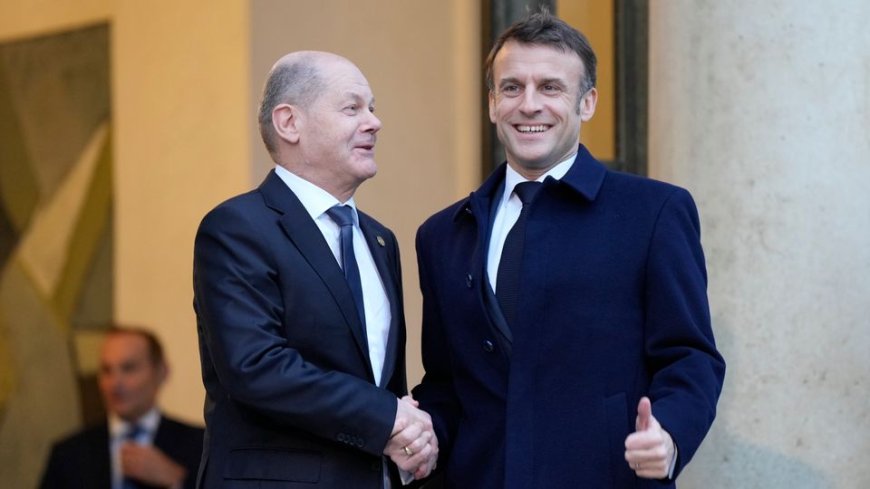Macron's Trip to Germany Comes Amid Tensions Between the Two Countries

The relations between France and Germany have always been marked by ups and downs over the past few decades. Currently, the presence of two incompatible leaders has led to ongoing challenges in their relationship. Macron and Scholz have differing leadership styles, and since the German chancellor took office in late 2021, they have publicly disagreed on issues such as European defense and nuclear energy.
improving relationship
Last Sunday, Emmanuel Macron made the first state visit by a French president to Germany in 24 years, in an effort to improve relations between the two countries. The upcoming election of Donald Trump as the new president of the United States is looming.
Jan Wernert, from the Jacques Delors Institute in Berlin, told Reuters, "There are tensions in the relationship between Germany and France, but part of it is because the parties have addressed difficult and challenging issues between them. These are issues that are inherently stressful."[1]
A Meeting in the Midst of Election Challenges
Macron's trip to Germany occurred two weeks before the European Union elections. In fact, the conditions surrounding the publication of the poll results suggest that this election may prove to be a significant challenge for Macron. His centrist coalition is currently trailing behind the French extreme right in the polls, and there is a possibility that they may even compete for third place.
In Germany, polls show that the three coalition parties under Prime Minister Olaf Scholz are trailing behind the far-right Alternative for Germany (AfD). However, the anti-immigration party is also grappling with a series of scandals.
What issues were considered during Macron's trip to Germany?
During Macron's three-day trip to Germany, in addition to discussing the common demands of the two countries regarding the European Union elections, he emphasized the historical significance of the relationship between the two main countries of the European Union. Macron's opposition to sending troops to Ukraine also sparked a sharp reaction from Schultz, with Germany announcing that there is no such program in place. Furthermore, Berlin did not support Macron's desire for European strategic autonomy and reducing dependence on the US.
During the trip, Macron avoided discussing differences with Germany and instead highlighted cooperation with Germany as a key issue. They emphasized the agreement between the two countries on sanctions against Russia for the war in Ukraine and efforts to support Europe's economic growth and innovation post-COVID-19. [2]
During the official meeting, both sides shared their vision for Europe in a joint article for the Financial Times, stating that the European Union must undergo urgent reforms to preserve its competitiveness.[3]
Conclusion
From previous years until now, several issues have caused differences and tensions between the countries of France and Germany. However, common interests still drive these two main powers of the European Union towards unity. One of these shared interests is the determination to defend Europe in the event of Donald Trump's return to the White House. This resolve has been strengthened by Donald Tusk's recent re-election in Poland on a pro-European platform.
The "Weimar" format, involving interactions between Paris, Berlin, and Warsaw, will be revitalized as a result. Poland, considered the largest eastern member of the European Union, will play a crucial role in this alliance. Both France and Germany are also preparing to face the threat of a strong far-right presence in the upcoming parliamentary elections. They will strive to find common ground on the EU's agenda for the next five years.
The challenges confronting Europe will become even more complex if the extreme right makes significant gains in the European Parliament elections. This situation would be further complicated by a potential victory for Trump in the upcoming fall elections.[4]













































